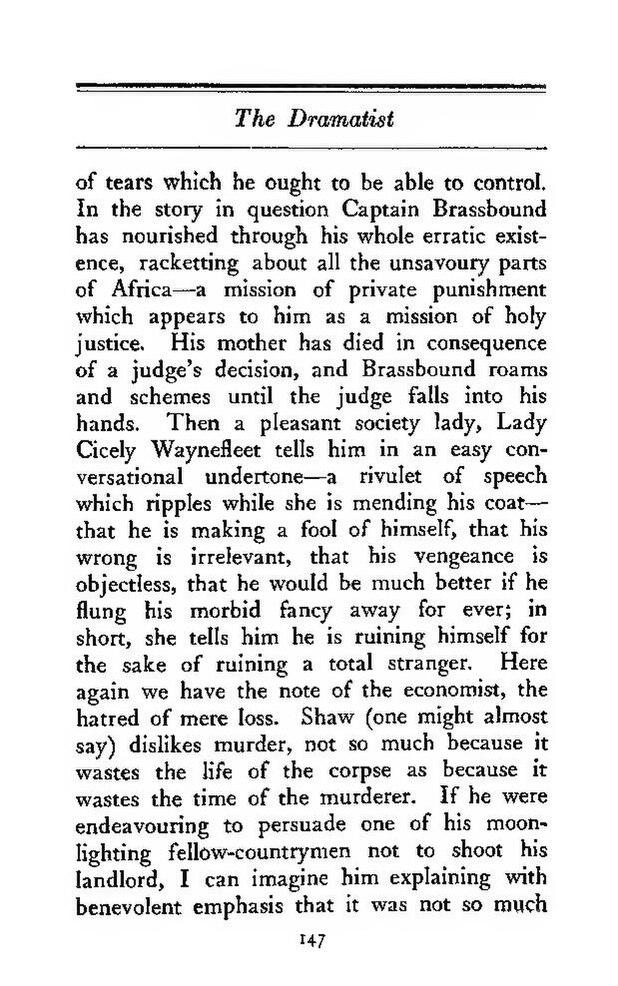of tears which he ought to be able to control. In the story in question Captain Brassbound has nourished through his whole erratic existence, racketting about all the unsavoury parts of Africa—a mission of private punishment which appears to him as a mission of holy justice. His mother has died in consequence of a judge's decision, and Brassbound roams and schemes until the judge falls into his hands. Then a pleasant society lady, Lady Cicely Waynefleet tells him in an easy conversational undertone—a rivulet of speech which ripples while she is mending his coat—that he is making a fool of himself, that his wrong is irrelevant, that his vengeance is objectless, that he would be much better if he flung his morbid fancy away for ever; in short, she tells him he is ruining himself for the sake of ruining a total stranger. Here again we have the note of the economist, the hatred of mere loss. Shaw (one might almost say) dislikes murder, not so much because it wastes the life of the corpse as because it wastes the time of the murderer. If he were endeavouring to persuade one of his moonlighting fellow-countrymen not to shoot his landlord, I can imagine him explaining with benevolent emphasis that it was not so much
147
